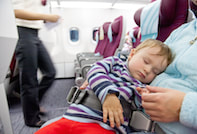Your travel ready checklist From smart booking to safe travel, here’s everything you’ll need to know before you go.COVID vaccine certificates for US travelersVaccination certificates are a big part of travel, with many destinations offering looser restrictions for fully vaccinated travelers. Using COVID-19 vaccine certificates to prove that you’re fully vaccinated gives you a lot more freedom in terms of where – and how – you travel.
There are several ways to prove your vaccinations status, whether via the CDC COVID-19 Vaccination Record Card or various digital apps. Read on to find out more about vaccine certificates and how to use them.
0 Comments
How successful people start their daysIf one were to take a wild guess as to the things successful people do each morning, you might assume their days start pretty chaotic and full. Do they jump right into their huge to-do lists, check emails, and run out the door with their phone in one hand and a protein bar in the other?
It might surprise you that some of the world’s most successful people start their days with a very calm, low-key routine. Sounds boring, huh? The key is not necessarily in copying someone else’s specific routine, but in creating time in your morning to start it well. Waking up to chaos and rushing to the office doesn’t get your productivity off to a great start. Here are a few things you can do to start your day well and put you on the road to greater success.  When booking a flight you don't want to book only a couple days before and miss out on the best deals. Prices on tickets change on average every 4-5 days on a average of $33 up or down. In these nest few paragraphs I have complied tips on tricks on how you can save money as well as when the best time to book a flight is. The most important thing to remember is don't wait till the last week. Prices usually go up about 25% during that time. According to cheapAir international flights...."stay fairly flat for a few months, then start to creep up slowly, until abut 90 days before departure when the place of starts to accelerate." The cheapest time to book a flight is within five and a half months and one month prior from departure. Think about it as hitting the sweet spot, trying to book a flight 7 months in advanced you wont get good prices and waiting till the last minute you will get very expensive prices but getting it right in the middle is when the price will be at it's best. In closing some of the last tips I have is always look for deals and savings! Within the 6 months of looking always be checking up for deals and special sales your airline may be having at the time. You wont always get the cheapest flight or the best deals but there are always ways to get the long end of the stick. The very last and maybe the most important tip I have is when is the best day to book a flight? This always depends on the airline and where you are traveling to but the cheapest day and time is Tuesday at midnight. You can save about 6% on your flights. I hope these short tips can help you next time your booking a flight!  Elbows off the table? Clean your plate like your mother taught you? Not so fast. Food etiquette varies widely from culture to culture and can sometimes appear to have no rhyme or reason. In the Middle East, India, and parts of Africa, keeping your elbows off the table isn’t enough—you’re not supposed to touch anything at the table with your left hand (it’s considered dirty). In France, it’s considered more polite to put your slice of bread on the table than to rest it on your plate. Slurp soup in Japan and no one will bat an eye. Slurp soup in China and you’ll be the Ugly American. In China, eating rice with chopsticks is expected, but in Thailand it’s considered inappropriate (there, you should use a spoon). In Brazil and Chile, don’t eat anything with your hands (no, not even fries). In Italy or Cuba, putting your cutlery on the right side of your plate means you’re done with the meal. But in Spain, you’d place it on your plate to indicate that you’re finished. Clean your plate in Ecuador and you’ll be given seconds, but in Peru cleaning your plate is just considered polite. And remember whenever you sit down to eat in a group outside the U.S., there’s a good chance you should wait for either the host or the eldest person at the table to start eating before you tuck into what’s on your plate. |
Becky H.
From the desk of
your travel advisor... Archives
February 2022
Categories |



 RSS Feed
RSS Feed
